Mossad Chief Warns About Iran's Intentions, Weapons For Russia
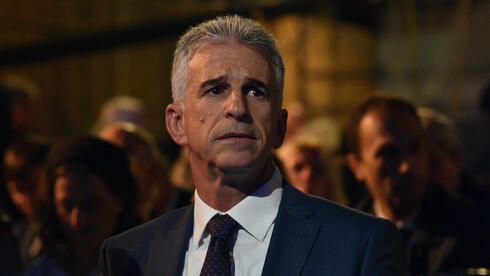
Iran is preparing more weapons deliveries to Russia and is trying to mislead the world on arming its ally, head of Israel’s Mossad, David Barnea said Thursday.

Iran is preparing more weapons deliveries to Russia and is trying to mislead the world on arming its ally, head of Israel’s Mossad, David Barnea said Thursday.
In a speech to his agency’s employees, Barnea warned about Tehran’s intentions, underlining that the Islamic Republic continues daily cyber-attacks and other machinations against Israel. He added that Mossad is ““still warning about Iran’s future and intentions, which it is trying to keep secret.”
The spy chief also called the Obama-era nuclear deal with Iran known as the JCPOA an “absurd” agreement taking aim at the United States and its European allies who have been negotiating with Tehran to revive the accord since early 2021.
The diplomatic effort has come to an impasse as Iran is ramping up uranium enrichment but the Biden Administration and the European Union still say that diplomacy is the best option to limit Iran’s nuclear program.
“We are warning about Iran’s intention to expand its uranium enrichment program, and its intention to increase its influence over friendly Muslim countries in the region in various ways,” he said, vowing never to allow the Iran’s clerical regime to obtain nuclear weapons.
He also praised the Iranian protest movement, saying hundreds have been killed in the streets, calling it “unrestrained brutality” by regime forces.
Barnea claimed that Israel provided intelligence to its Western allies earlier in the year about Iran’s plans to provide killer drones to Russia to be used against Ukraine and insisted that Tehran is preparing more weapons deliveries to Moscow.

The White House said Thursday that the Wagner Group, a Russian state-backed military outfit, has taken delivery of an arms shipment from North Korea.
US officials have been expressing concern over Iran’s growing military ties with Russia and the prospect of North Korea providing weapons to the Russia military which is facing shortages.
White House National Security Council spokesman John Kirby said US intelligence officials determined that North Korea completed an initial arms shipment that included rockets and missiles last month.
"We assess that the amount of material delivered to Wagner will not change battlefield dynamics in Ukraine," Kirby said. "But we're certainly concerned that North Korea is planning to deliver more military equipment."
US ambassador to the United Nations Linda Thomas-Greenfield also said Thursday, “It is despicable that Russia, a permanent member of the UN Security Council, is now using weapons procured from the DPRK and Iran – in violation of UN Security Council resolutions – to pursue its war of aggression against Ukraine.”
Kirby said the US now assesses that Wagner has some 50,000 personnel fighting in Ukraine, including 10,000 contractors and 40,000 convicts that the company has recruited from prisons.
The US assesses that Wagner, owned by Putin ally Yevgeny Prigozhin, is spending about $100 million a month in the fight, Kirby said.
Wagner has faced US sanctions since 2017. The Commerce Department on Wednesday unveiled new export restrictions targeting Wagner in a bid to further restrict its access to technology and supplies.
Russia has also turned to Iran to provide drones to use against Ukraine, and the Biden administration has expressed concern that Russia may seek to acquire additional advanced conventional weapons from Iran.
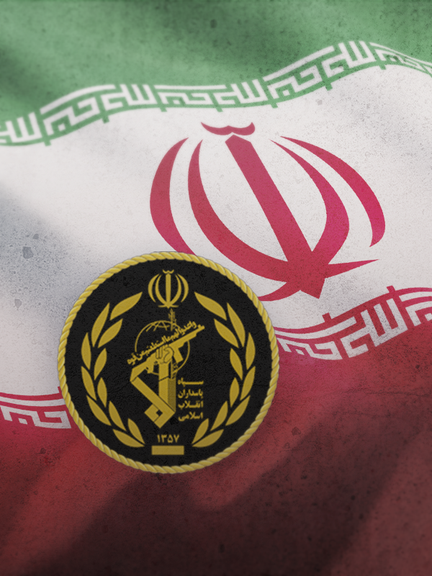
The Dutch Parliament on Thursday passed a motion that urges the government to support EU's proscription of IRGC as a terrorist organization, considering the repression of protesters and supply of drones to Russia.
The motion was introduced to designate Iran’s Revolutionary Guard (IRGC) as a terrorist group both at the national and European level.
Don Ceder, Member of House of Representatives of Netherland told Iran international that putting pressure on the regime in Iran is necessary to make sure it upholds all the human rights of the people.
“We have proposed many sanctions in many ways on a national level, also on a European level, because we feel that we are in solidarity with the people of Iran,” he added.
He said Dutch parliamentarians are calling upon the Iranian government to uphold the human rights path policies and ensure that people have the freedom to demonstrate and to stop any planned executions.
“I have submitted a motion to even regard the IRGC as a terrorist group. So, this is something we are talking about in the parliament to see if it gets a majority. We are really advocating sanctions on a national level, but also at the European level,” he noted.
Earlier this month, the EU designated 20 people and Iran’s state media over reported human rights abuses, along with eight people or entities over sending drones to Russia.
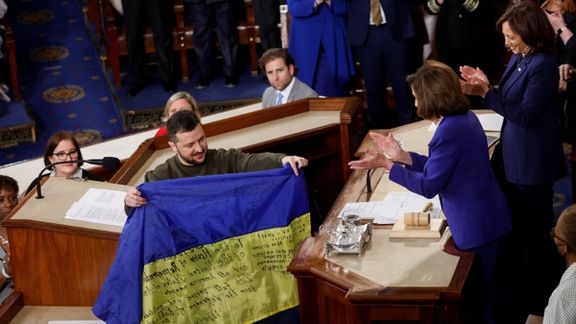
Iran has rejected charges made by Ukrainian President Volodymyr Zelenskyy in his speech to the United States Congress Wednesday.
Foreign affairs spokesman Nasser Kanaani said Thursday Zelenskyy had made “baseless accusations” over Iran’s supply of military to drones to Russia. Kanaani reiterated Tehran’s contention it had not “issued any military equipment to any side for use in the war in Ukraine.”
Iran said in November that any its Shahed-136 drones – which employ many easily-bought US components – used by Russia had been sent before the current wave of hostilities began in February - which does not preclude their use in the war.
Kanaani charged that Zelenskyy had exploited the issue “with the hope of strengthening Ukraine’s defensive power and American support for the war.” In his emotional address, after which he handed House Speaker Nancy Pelosi a Ukrainian flag signed by troops defending the city of Bakhmut, Zelenskyy asked for more arms and more sanctions against Russia.
At the White House, President Joe Biden promised to “keep the flame of liberty burning bright” and pledged an extra $1.85 billion in weapons, on top of the current $20 billion, while Congress prepared to vote another $45 billion in overall aid.
In his Congressional address, Zelenskyy presented Iran as “an ally [of Russia]…in this genocidal policy” and a “terrorist.” Responding, Kanaani said Tehran had “always respected the territorial integrity of countries, including Ukraine.” Earlier this week, Foreign Minister Hossein Amir-Abdollahian told the Third Tehran Dialogue Forum that Iran wanted the conflict resolved through dialogue “taking into account the legitimate security concerns of the parties.”
Back in July, when Russian President Vladimir Putin visited Tehran, Iranian Leader Ali Khamenei blamed the West, suggesting war had resulted, at least in part, from Nato failing to “recognize any limits or borders.” Citing the 2014 Ukraine “coup” – protests that removed Moscow-inclined President Viktor Yanukovich and prompted Russia’s seizure of Crimea – and Nato’s expansion to 14 eastern European countries since 1999, Khamenei said the “dangerous creature” of Nato, if not faced down, “would have started this war anyway.”
But what clearly showed that Khamenei supports Russia’s attack on Ukraine was his praise for Putin to have taken the “initiative” against Ukraine.
Although most of the drones have been easily shot down and US spokesman Ned Price has conceded their role as small, some analysts suggest the real US fear is Tehran replenishing Moscow’s missile stocks, which the US hopes to run down as the war continues.
US: Russia ‘illegally’ using Iranian, North Korean weapons
The US Thursday kept up denunciation of Russia-Iran links. In a statement Washington’s ambassador to the United Nations Linda Thomas-Greenfield said Russia was “illegally” using weapons from both Iran and North Korea in its “Brutal War [sic] Against Ukraine.” Thomas-Greenfield called this a “violation of UN Security Council resolutions.”
She was apparently referring to North Korea’s launching ballistic missiles this year, which she said implicated Russia as a “partner to such behavior.” The illegality of acquiring Iranian military drones, she suggested, arose from “violations of UN Security Council Resolution 2231,” which in 2015 endorsed the Iran nuclear agreement, the JCPOA (Joint Comprehensive Plan of Action). The US left the JCPOA in 2018 but along with France, Germany, and the United Kingdom now evokes the resolution in claiming the drones supply violates one of 2231’s clauses – a claim Tehran and Russia reject.
Israeli officials, meanwhile, cited in Haaretz newspaper Thursday, said Iran could use technology from its space program to launch nuclear weapons. These officials, the paper continued, “say that two of the rockets Iran has developed for launching satellites into orbit – the Zoljanah and the QAEM-100 – have similar capabilities [to those of ballistic missiles], including engines and fuel tanks that can accommodate solid fuel.”
Reporting that “building an intercontinental ballistic missile with such a range [over 4,000 km] is one of Iran’s strategic goals,” Haaretz informed readers this would “add Europe to the list of countries threatened by Iran’s weapons, whether conventional or nuclear.”
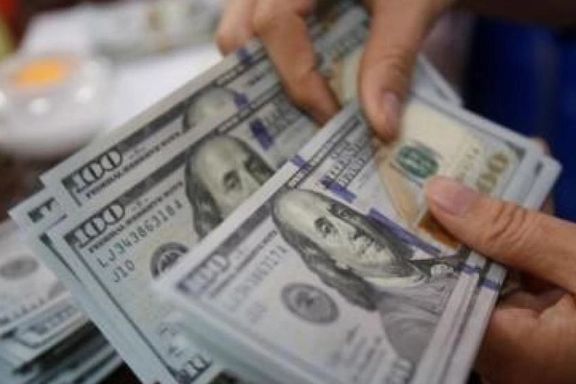
Iran’s currency has dropped to a new historic low, breaking the 400,000 rial threshold against the US dollar Thursday, amid deep political and economic crises.
The rial has now lost nearly 50 percent of its value compared to mid-2021 and over 30 percent since December 2021.
The de facto devaluation is expected to boost Iran’s annual inflation rate, currently estimated to be 50 percent. Food prices have jumped much faster than overall inflation, with some items registering 100-percent increase in one year.
The high inflation rate this year comes on top of rising prices since 2018, when the United States pulled out of the nuclear accord known as the JCPOA and imposed oil export and banking sanction on Iran.
Iran has been rocked by nationwide antigovernment protests since mid-September after a 22-year-old woman, Mahsa (Zhina) Amini, was killed in police custody. She was arrested for violating the country’s forced hijab rules. But since then, protests have turned against the ruling regime, with many Iranians demanding a secular and democratic form of government.
Opponents of the Islamic Republic have also urged people to withdraw their deposits from government banks to put further pressure on the government, which has been printing more money in recent years. The money supply has grown at an unprecedented pace since September.
Talks to revive the JCPOA and lift most of the US sanctions have stalled since August when the last attempt by the European Union to broker a deal fell apart.
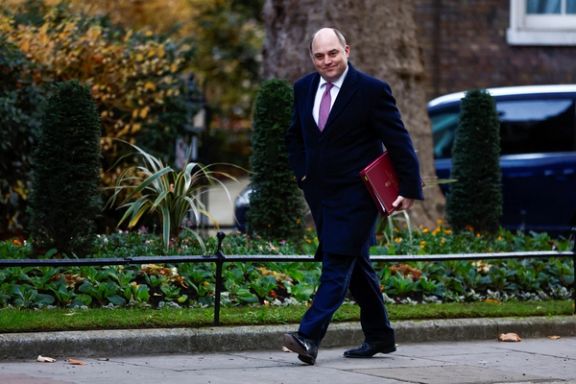
The United Kingdom has warned that Moscow is to provide Tehran with some advanced military technology that will put the security of the Middle East and world in danger.
Britain’s Defense Secretary Ben Wallace told parliament Tuesday that in return for Iranian drones it uses in attacks on Ukraine, Russia will supply the military components to the Islamic Republic.
Wallace told the parliamentarians that Iran should be held accountable for supporting Russia in war on Ukraine.
“We must hold their enablers to account,” he noted. “Iran has become one of Russia’s top military backers. In return for having supplied more than 300 kamikaze drones, Russia intends to provide it with advanced military components, undermining both Middle East and international security. We must expose this deal.”
However, Wallace did not reveal more details about the technology that Tehran is going to receive.
Reuters says the Russian Defense Ministry and Iran’s foreign ministry have refused to give a comment regarding Wallace’s statements.
Earlier, Washington said Moscow was moving to provide Tehran with advanced military assistance including air defense systems, choppers, and fighter jets.
Russia was offering the Islamic Republic “an unprecedented level of military and technical support that is transforming their relationship into a full-fledged defense partnership,” said White House National Security Council spokesman John Kirby on December 9.
The Biden administration recently unveiled sanctions against Iranian firms and entities involved in the transfer of drones to Russia for use in Ukraine.